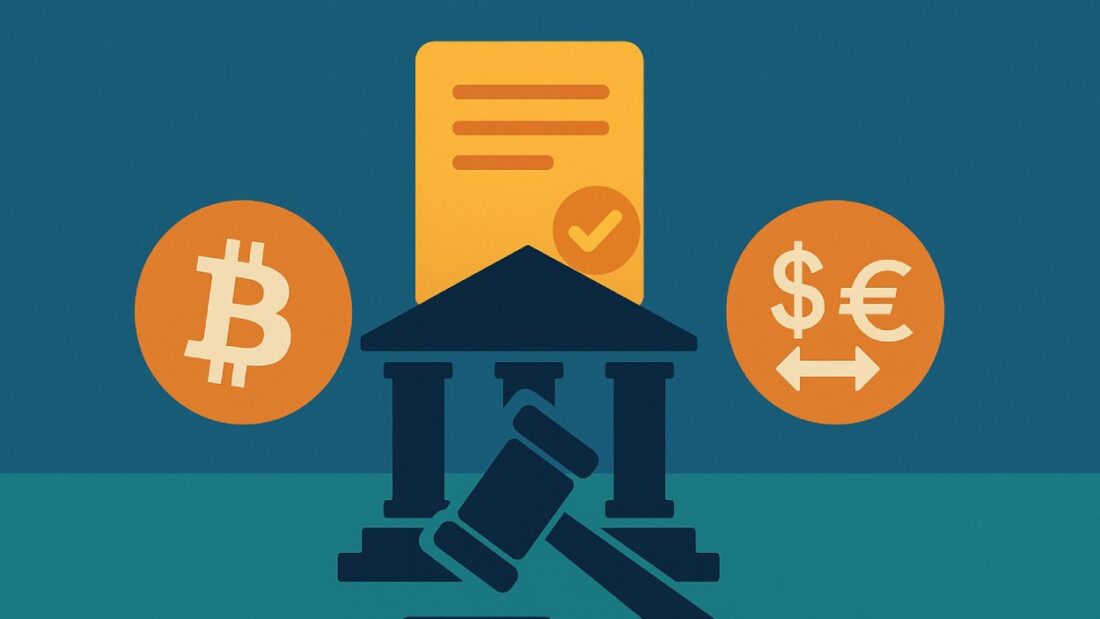Brazil’s central bank is proposing strict new rules for electronic foreign exchange services, and while crypto exchanges are not directly named, many may fall under the new regime.
Key Takeaways
- Brazil’s central bank has opened a public consultation on new forex regulations that would bring eFX platforms under tighter control.
- Though crypto platforms are not explicitly targeted, those facilitating international transfers or currency conversions may be impacted.
- Key proposals include mandatory licensing, data reporting, and a $10,000 transaction cap per individual transfer.
- Global crypto platforms serving Brazilian users could face compliance challenges or restrictions under the new rules.
What Happened?
The Central Bank of Brazil (BCB) has released a public consultation paper outlining proposed rules for the country’s foreign exchange (forex) sector. Although the proposals focus on electronic forex (eFX) platforms, experts warn they could also affect crypto exchanges, particularly those that support cross-border transfers or transactions in foreign fiat currencies.
Brazil just passed a law forcing age checks on digital platforms.
— Reclaim The Net (@ReclaimTheNetHQ) September 24, 2025
Framed as child protection, the “Digital ECA” opens the door to mandatory digital IDs, killing online anonymity in the process.
It’s part of a global trend: age verification as a Trojan horse for mass… https://t.co/IkpwVla1Eb
New Regulatory Rules for Forex Services
Brazil’s central bank is aiming to bring the largely unregulated forex market under its direct supervision. The proposed rules, published for public feedback until November 2, outline a series of requirements that could reshape how platforms operate:
- Mandatory licensing for all new and existing forex platforms.
- Detailed transaction data submission to the central bank.
- Use of specific on/off ramps for deposits and withdrawals.
- Transparency measures to show users the full cost of each transaction.
- A $10,000 cap per individual transaction.
These rules are designed to promote transparency, reduce risks, and ensure financial stability in Brazil’s evolving currency exchange environment.
Crypto Platforms May Be Indirectly Affected
While the central bank’s document does not mention cryptocurrencies or exchanges by name, the language of the proposal suggests that any platform facilitating currency swaps or international money transfers could fall under the new framework.
This could bring a wide range of crypto exchanges, particularly those allowing customers to exchange crypto for foreign currencies or send funds abroad into the regulatory spotlight. For instance:
- Brazilian crypto exchanges offering cross-border services may be required to apply for permits and adhere to the same data and operational standards as forex providers.
- Global crypto platforms serving Brazilian customers might have to comply with the $10,000 transaction limit or face service restrictions.
Impact on Global Crypto Operators
The potential reach of these rules could affect major international exchanges operating in Brazil. If enforced strictly, they may need to limit transaction sizes, restructure their on/off ramp processes, or even adjust their platforms to align with Brazilian compliance standards.
While these changes would not necessarily outlaw crypto trading, they would impose stricter operating conditions for platforms dealing with Brazilian users. The ripple effect could be significant, especially in a region where crypto adoption is rapidly rising due to economic uncertainty and inflation.
What This Means for Crypto Traders in Brazil?
Brazil has become a major hub for cryptocurrency activity in Latin America. As local interest in stablecoins and other digital assets grows, especially among users seeking alternatives to volatile national currencies, regulatory clarity becomes more important.
However, the proposed rules could create operational barriers for crypto traders, especially for those needing to move large amounts of capital abroad or convert crypto into foreign fiat currencies. The $10,000 cap may restrict certain activities, and compliance requirements could slow down the speed and efficiency users have come to expect.
At the same time, these rules are framed as risk management tools rather than an attempt to block innovation. If implemented with clarity and flexibility, they could provide a more stable foundation for long-term crypto growth in Brazil.
CoinLaw’s Takeaway
I see this move by Brazil’s central bank as a big step toward formalizing oversight of digital financial services, even if crypto isn’t the main target. In my experience, regulatory gray zones create uncertainty for platforms and users alike, so clearer rules, when done right can actually strengthen the ecosystem.
But here’s the catch: even without being named, crypto is being swept into the net. And that means platforms need to prepare for stricter controls, slower onboarding, and more paperwork. For Brazilian crypto users, it’s a warning sign that unlimited cross-border freedom might be coming to an end. If you’re running or using a platform that deals in foreign fiat, it’s time to take a close look at how these rules could affect your operations.


































































